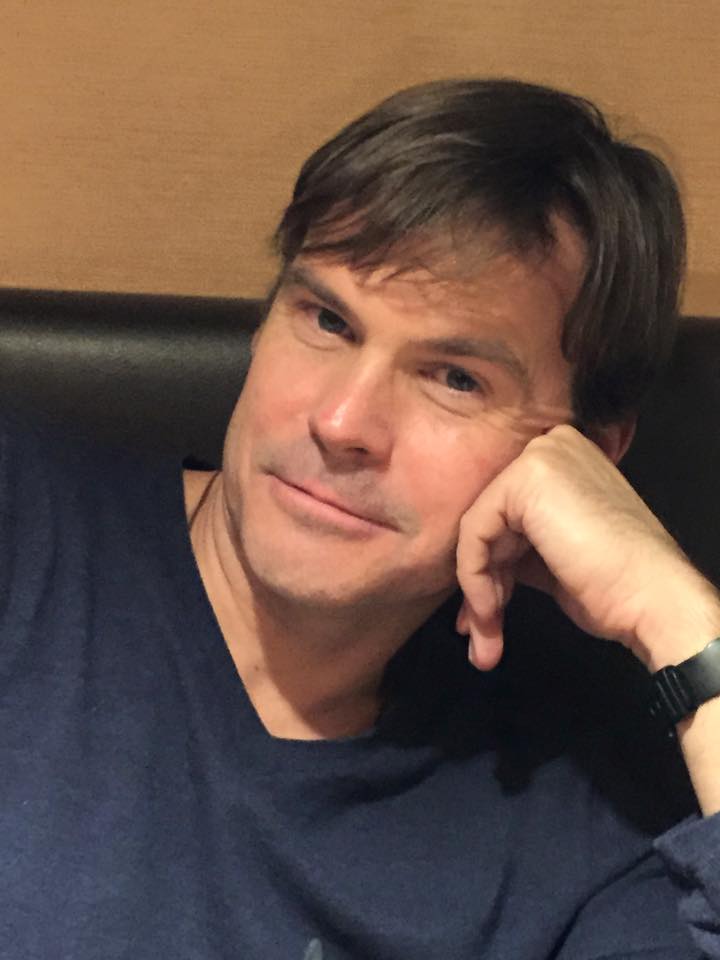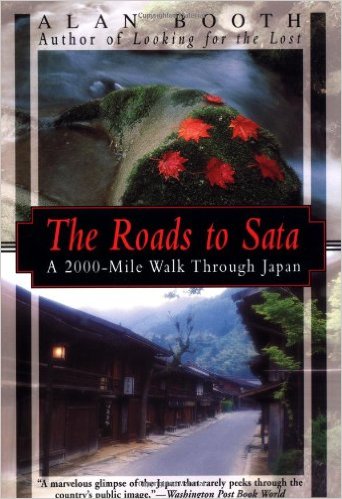Ted Taylor quizzed by Michael Lambe

Edward J. Taylor (Ted to his friends) is probably best known for his blog, Notes from the ‘Nog’, and as a contributing editor for Kyoto Journal. However his work has also appeared in The Japan Times, Resurgence, Outdoor Japan, Kansai Time Out, Elephant Journal and a host of other print and online publications. Last year he co-edited the Deep Kyoto: Walks ebook anthology, and he also has a number of other books and translations of his own in the pipeline of which we shall learn more below. For this WiK article he was interviewed by his friend and co-editor on the Deep Kyoto: Walks project, Michael Lambe.
How would you describe your writing?
Creative non-fiction. Travel writing primarily.
You’re a keen hiker as we know well from your blog, Notes from the Nog. How does the rhythm of walking affect your writing?
Walking is simply my preferred method of travel. It slows things down to the pace of a snapshot, and allows me time to think more deeply about what I engage as I go along.
Would you say your writing has an essential message?
Not particularly. I am simply hoping to capture what Japan is like at this time in its history. When Alan Booth did his great walk back in the mid-70’s, he reported on the old storytellers. Most of those are now gone, so I am hoping to report on the stories of those who are left
Why do you write?
I can’t not.
What are your major literary influences?
In no particular order: W. Somerset Maugham. Graham Greene. Richard Ford. Norman Lewis. Raymond Carver. Gary Snyder. Denis Johnson. Jack Kerouac. Santoka. Issa. Ryokan. Tu Fu. Many many others…
Do you have any other sources of inspiration?
In terms of storytelling, I love the films of Ozu, especially his use of ‘ma,’ which we could think of as negative space. There is so much he doesn’t show, yet still manages to convey. I sometimes try to describe something in a roundabout way, to allude to it rather than simply saying that “the sun is shining.”
Also, you mentioned rhythm before. I have been a musician since I was a child, and often play with punctuation in order to give a paragraph a certain rhythm. Michael, you yourself have scolded me for double spacing after a period, but it is very much intentional. And I also like to throw in the occasional song lyric as a kind of in-joke.
What writing projects do you currently have on the boil?
Over the winter I helped a Zen priest translate his own book called The Little Prince Talks Zen, based on Antoine de Saint-Exupéry’s classic. We are looking for a publisher. I will begin a second book of his called Momo Talks Zen this summer, based on a children’s book by the German author Micheal Ende. I am also working with two foreign writers in the Kansai area in an editorial capacity, on projects that haven’t really gotten off the ground.
My manuscript on my Shikoku pilgrimage needs one final edit, then I will send it off. Another manuscript of mine on atomic tourism also needs one last look. Plus there are about three other manuscripts nearly finished, all on random walks around Japan. Unfortunately my part-time work as a hiking guide as well as other personal matters have kept me from my desk for too long.
Is writing a political act for you? What are your politics?
Environmental politics have always been important to me. That’s why I am so interested in the old stories, as they can remind us of a way to live more deeply and more sustainably. I think that things have gotten to the point that every act needs to be a political act. As the old saying goes: ‘If you aren’t part of the solution you’re part of the problem.’
Tell us about your spiritual or philosophical journey.
That’s a whole other interview, dude. But I feel the same way; that every act needs to be a spiritual act.
What brought you to Japan?
The old cliché: I wanted to study Zen and martial arts. (The new cliché appears to be: I want to dress as a furry creature and play video games.)

How does Japan inspire you?
Even after 20 years I still experience something new every week. And the countryside is magical.
How would you describe your relationship with Japan, and with Kyoto in particular?
I happen to be pretty frustrated with Japan at the moment, mainly with the current abusive political climate and the average citizen’s apparent unwillingness to do anything about it. Kyoto too has frustrated me in the past, but I am quite enamored with it these days. Mainly due to the creativity of the people here. It’s a good place to be a writer.
If you were to recommend one book on Japan, what would it be?
The Roads to Sata. Hands, down. It reveals more with every re-read.
What one book would you recommend on Kyoto?
By the Old Walls of Kyoto. An overlooked masterpiece. (See the WiK post on author Harold Stewart.)
What is your greatest achievement so far?
Spending only two years of my life working a full time job. I’ve somehow found a way to work minimally and still make enough to let me pursue the things that interest me.
What is one thing you feel you must achieve before you die?
Finish the hard copy version of our Deep Kyoto: Walks. Our self-published book isn’t going to publish itself.
Deep Kyoto: Walks is available on Kindle at Amazon.com and Amazon.co.jp
